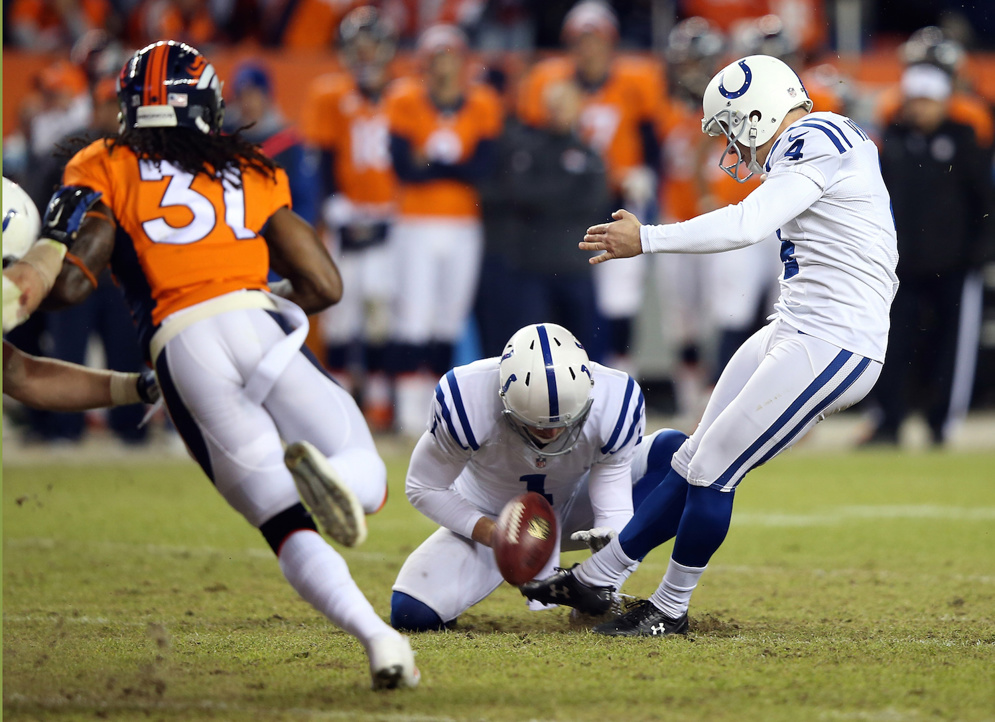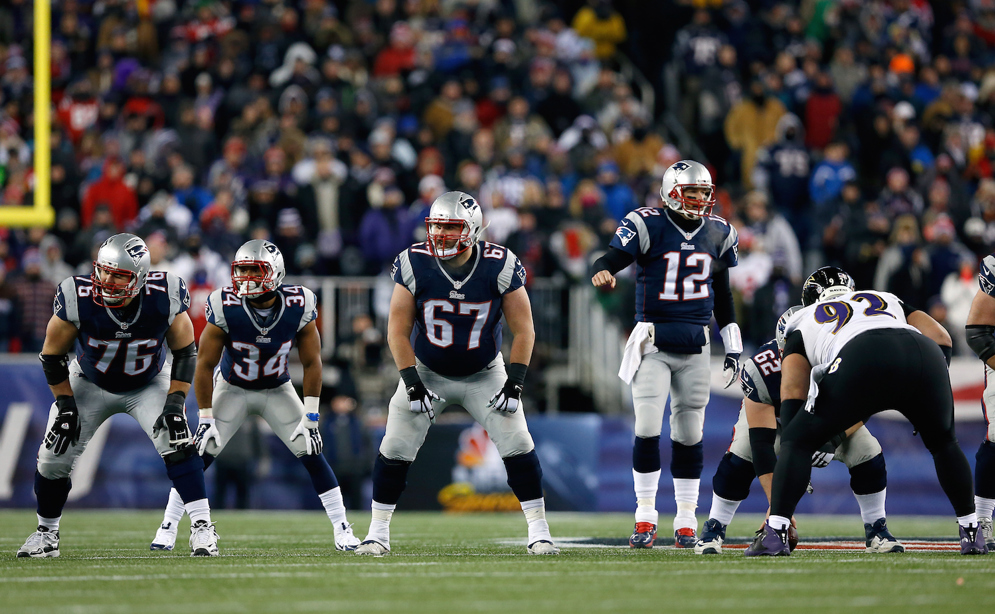Owners to Vote on Potential Rule Changes
When team owners meet next week in Phoenix, the NFL Competition Committee will vote on 24 proposed changes to the playing rules, four proposed amendments to the league’s constitution and bylaws, and one resolution that would amend the policies on retractable roofs.
Before the 2015 National Scouting Combine in February, the Competition Committee and league experts started discussing possible rules changes and ways of protecting players from unnecessary risks. At the beginning of March, the committee reconvened to review suggestions, to hear and address concerns from key stakeholders, and to comb through hours of video.
During the owners’ March 22–25 meetings, the Competition Committee will present the proposed changes to the league’s 32 owners for debate and ultimately a vote. All proposals must be approved by 75 percent (24) of the owners to be adopted.
The NFL’s process for modifying or adopting rules and regulations is systematic and consensus-oriented. The deliberative process takes into consideration the input of experts, clubs, players, league committees, the NFL Players Association and others.
Of the proposed modifications, 13 would affect the instant replay review process:
- From New England: Allow coaches with available timeouts and challenges to challenge any official’s decision except scoring plays and turnovers.
- From Detroit: Subject every foul that is called to instant replay review.
- From Washington: Give teams three challenges, eliminating the need for a team be successful on each of its first two challenges to be awarded a third.
- From Tennessee and Washington: Use instant replay to review personal foul calls.
- From Washington: Review any penalty that results in an automatic first down.
- From Tennessee and Indianapolis: Use instant replay on fouls against defenseless players. Tennessee proposes that fouls for hits on defenseless receivers can be created in replay when a completed pass is reversed to incomplete . Indianapolis proposed that coaches be allowed to challenge fouls against defenseless players without losing a timeout on an unsuccessful challenge.
- From Kansas City: Let replay officials initiate reviews of plays that would result in a score or change of possession if the on-field ruling is reversed.
- From Tennessee and Chicago: Allow replay to be used to resolve clock issues. Tennessee wants review to apply to the status of the game clock on the final play of either half or overtime; its proposal would be in effect for only one year. Chicago wants replay to apply to the status of the play clock.
- From New England: Place fixed cameras on all of the field’s boundary lines.
- From Tennessee: Let stadium-produced video be used for instant replay review.

The Colts' proposal would reward teams that score a touchdown and successfully convert a two-point conversion with an opportunity to attempt a 50-yard field goal for an additional point, for a possible 9 point play (6+2+1).
Two proposals would affect the PAT process:
- From Indianapolis: Reward teams that score a touchdown and successfully convert a two-point conversion with an opportunity to attempt a 50-yard field goal for an additional point (creating a chance for 9 total points: 6+2+1).
- From New England: Move the line of scrimmage for PAT kicks to the 15-yard line.
Other proposals:
- From Chicago: Allow both teams to have at least one offensive possession in overtime, even if the team possessing the ball first scores a touchdown.
- From Baltimore: Prohibit defensive players on punts from pushing teammates into the offensive formation at the line of scrimmage.
- From Miami: Allow any offensive player to be called for an illegal “peel-back” block when the blocker goes below the waist toward his own goal line.
.

If a Competition Committee recommendation is adopted, it will be illegal for an offensive player with an eligible number to report as ineligible and line up outside the core of the formation.
The Competition Committee recommended six changes:
- Make it illegal for an offensive player with an eligible number to report as ineligible and line up outside the core of the formation (tackle to tackle).
- Make it illegal for an offensive player to “hide out" on the field near the sideline on the same side of the field as his team’s bench after a substitution.
- Give defenseless player protection to intended receivers on a pass play that results in an interception.
- Enforce any unsportsmanlike conduct fouls that occur at the end of a half on the ensuing kickoff.
- Make it illegal for a player lined up in the backfield to chop a defensive player engaged above the waist by another offensive player outside the area originally occupied by the tight end.
- Let clubs assign more jersey numbers to linebackers (allowing them to use 40–49 in addition to 50–59 and 90–99).
In addition to rules of the game, the owners will vote on four proposed amendments to the league’s bylaws:
- From Washington: Eliminate the requirement that teams must cut rosters to 75 players after the third preseason game. Rosters still must be cut to 53 active players by the fourth Saturday of the preseason.
- From Philadelphia: Prohibit teams from hosting draft-eligible players who attended the National Scouting Combinefor any timing or on-field testing at their facilities.
- From the Competition Committee: Let the teams that play in the Thursday night season-opening game to designate their one player who can return early to their Active List from Reserve/Injured.
- From the Competition Committee: Change the date that starts the window during which players on Reserve/Physically Unable to Perform list may begin practice.
A resolution would put in place, for one year, policies allowing teams whose stadiums have retractable roofs to open those roofs for the second half of a game if the roofs were closed in the first half.
Follow Troy Vincent, executive vice president of football operations (@TroyVincent23), Dean Blandino, vice president of officiating (@DeanBlandino) and NFL Football Operations (@NFLFootballOps) on Twitter for updates.
